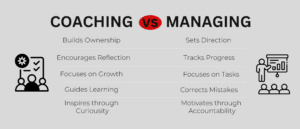TL;DR: Creating a Culture of Recognition in 2025
Recognition isn’t just a feel-good gesture – it’s a proven driver of engagement, retention, and performance. But for it to work, it has to be timely, personal, and consistent. In 2025, recognition has evolved beyond long-service awards to include peer shout-outs, skill development, and leadership that notices the work behind the scenes. When leaders build recognition into how they manage, teams feel valued, and they show it in how they perform.
__
Recognition in the workplace is simple in theory: it’s the act of making people feel valued and appreciated. But turning that idea into a consistent part of your culture takes more than just good intentions.
Today’s workforce spans five generations. With Millennials and Gen Z making up over half of the workforce in 2025, expectations around recognition have shifted. Teams want more than just a plaque at five years. They’re looking for timely, personal, and meaningful appreciation and they notice when it’s missing.
What the Latest Research Tells Us
The 2025 Global Culture Report by O.C. Tanner found that:
- Only 29% of employees say they receive meaningful recognition at least weekly.
- Recognition-rich cultures are 4x more likely to have highly engaged employees.
- Employees who feel appreciated are 50% less likely to look for a new job.
These numbers reinforce a simple truth: recognition isn’t a “nice to have.” It’s a core part of engagement, retention, and team performance.
Why Recognition Has Evolved
The old model of recognition based on tenure and hierarchy doesn’t reflect how people work today. Consider the changes:
- Remote and hybrid work means fewer impromptu thank-yous or visible wins.
- Peer recognition tools (like Kudos – a great Albertan company) now help make appreciation a daily habit.
- Public shout-outs on Slack, Teams, or intranet dashboards are the new “pat on the back.”
At the same time, generic or performative recognition falls flat. According to Gallup’s 2025 survey, 47% of employees say the recognition they receive feels hollow or impersonal.
To stay away from recognition that feels impersonal… Make sure that you are specific about what has taken place (a simple ‘great job’ isn’t it), make sure you do it in a timely fashion (don’t wait!), and align it with company values or outcomes (encourages similar behavior). As well… Personalize it! Not everyone wants to be recognized in front of a large group of people.
While bonuses and perks have their place, intangible forms of recognition, including giving trust, development opportunities, and autonomy, go further. In high-performing organizations, cultures that promote ownership, transparency, and peer-to-peer appreciation are 4x more likely to report above-average market performance (i4cp, 2024).
Power of High Fives
As a senior leader, I’m always interested in the science behind recognition and how it impacts organizations. Recently, I watched a video that highlights research from the University of California where researchers found that NBA teams whose players exchanged more high fives and physical encouragement performed better overall, with stronger team cohesion and higher win rates. The conclusion? Physical gestures of recognition like high fives – boost trust, teamwork, and results. I love the idea of how this is an easy way to recognize your team.
Creating a Culture of Recognition in the Workplace
Whether your team is remote, in-office, or hybrid, intentional recognition needs to be baked into the way you lead.
Start by:
- Asking employees how they prefer to be recognized.
- Making recognition part of team rituals—kickoffs, wrap-ups, or standups.
- Encouraging leaders to model recognition, not just push it down the org chart.
If you’re collecting feedback ahead of a strategic planning session, ask a few pointed questions about how employees currently experience appreciation or what’s missing.
Don’t Forget: Recognition is Development Too
Career development remains one of the most underused (and most valued) forms of recognition. When you:
- Offer learning and mentorship opportunities,
- Discuss career paths regularly, and
- Sponsor professional training or coaching…
…you’re showing your team they matter. And in 2025, that kind of investment speaks volumes.
Final Thought: Recognition Drives Results
Recognition done right isn’t just good for culture – it’s good for business. It fuels engagement, strengthens teams, and lowers turnover.
But it only works when it’s consistent, sincere, and tied to something real.
Recognition is just one piece of a healthy workplace culture.
If you’re working on engagement, retention, or leadership alignment, we can help with training and coaching programs built around real organizational impact. Let’s talk about how X5 Management can support you on your leadership journey!
Author: Kris Schinke
Kris Schinke is Vice President of Integration at X5 Management, bringing extensive executive experience across retail, financial services, and the non-profit sector. She is passionate about coaching and leadership development, helping organizations foster positive workplace cultures. Read more about Kris Schinke.
Exclusive Insights for Growth—Join Our Newsletter!





